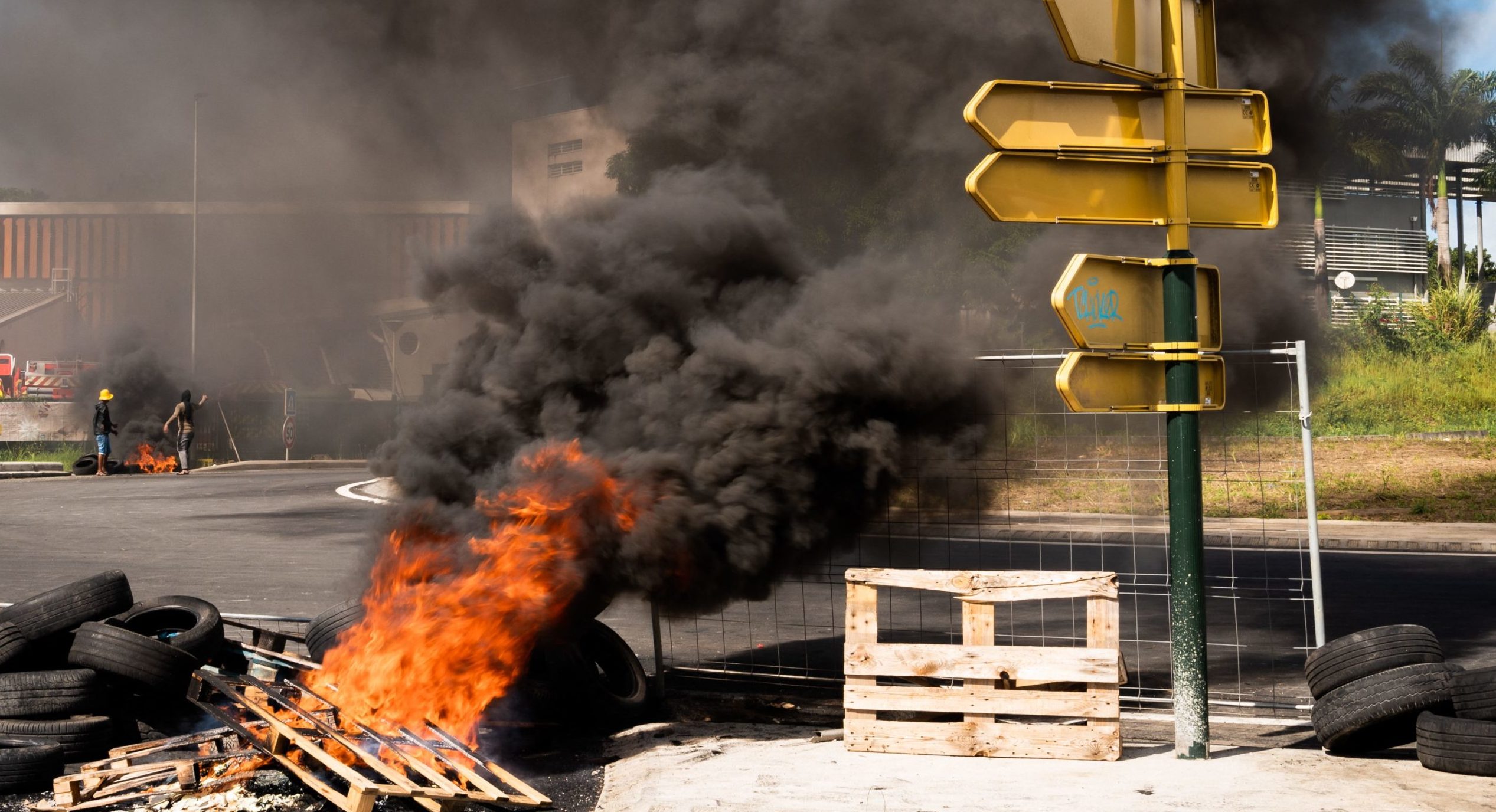Mainland France has been spared the violent Covid protests seen in some of its neighbouring countries in recent days — but a fragment of France 6,700 kilometres away has been convulsed by six nights of rioting.
Live ammunition has been fired in Guadeloupe in the Caribbean, an overseas département (county) which is fully part of France. Shots were also fired at police earlier this week in the neighbouring island of Martinique, also part of France Outremer (Overseas France).
No one has yet been killed or seriously injured in the riots. The worst of the violence shows some signs of abating but the unrest is far from over.
The immediate cause was a France-wide law, which belatedly came into effect in overseas France this month, which compels all health and emergency service workers to be vaccinated against Covid-19. Anyone who refuses can be fired.
Despite pleas by local politicians, the French government has refused to make an exception for overseas departments where vaccine-resistance is much more widespread than in European France. In France as a whole, almost 90% of adults are now double-vaccinated. In Guadeloupe it is 46%.
But the riots — unlike those in Belgium or the Netherlands — cannot be explained by Covid alone. Unions in both islands have called general strikes to demand, inter alia, more flexible vaccination rules than the French mainland, increases in wages and social benefits and cuts in fuel prices.
Both local politicians and the French overseas minister Sébastien Lecornu say that the worst of the violence — road barricades, cars burned, looting, rifle-shots — comes neither from trade union activists nor unvaccinated health workers. It comes from a disaffected, criminal minority.
In an attempt to calm the situation, the French Prime Minister Jean Castex — who has himself tested positive for Covid-19 this week — has offered to start a “listening process” on the islanders’ grievances.
“That’s typical of their contempt for us,” said Hilaire Luce, leader of one of the citizens’ groups in Guadeloupe which called the general strike. “They call it a listening group. Does that mean they assume we are illiterate? ”
The comment is telling. The unrest may have been detonated by Covid rules but it should be seen against a background of a love-hate, dependence-rejection relationship between metropolitan France and all its overseas “departments” and “territories”.
Legally and constitutionally, they are not colonies but part of France. They are subject to French laws, use the Euro and vote in French elections.
Economically, they are dependent on transfers from mainland France and French tourism. Their GDP per head is often higher than other neighbouring independent nations but far lower than France as a whole. Guadeloupe has a GDP per head of €22,000 — two-thirds below that of that of France. One third of its 397,000 people live below the official poverty line.
Resistance to vaccination in Guadeloupe reflects, in part, the kind of suspicion of vaccines seen in independent, developing countries. Local politicians say that anti-vax feeling has been reinforced by false information circulating on-line and by word of mouth.
But they also point out that the people of Guadeloupe believe that they have good reason to doubt the word of Paris on matters of health.
A pesticide called chlordecone was used in massive doses on the island’s banana plantations from the 1960s. It was banned in France in 1989, 10 years after it was found to be carcinogenic. Exceptions were made to allow its use in Guadeloupe and Martinique for another four years.
A French government study in 2018 found traces of chlordecone in the blood of 93% of Guadeloupéens and 95% of Martiniquais.
The overseas fragments of France are different one from another but — with the exception of St Pierre et Miquelon, off the Canadian coast — they are anomalous remnants of 18th and 19th century Empire. The present crisis will pass. Others will follow.











Join the discussion
Join like minded readers that support our journalism by becoming a paid subscriber
To join the discussion in the comments, become a paid subscriber.
Join like minded readers that support our journalism, read unlimited articles and enjoy other subscriber-only benefits.
Subscribe